The collection of news from Poland of the years 2019 to 2021, published at Nordicreporter.com.
On the streets in Poland: “This is war”
Published on : by Marcel Burger

A general strike of all women and those who are supporting women’s rights is announced for entire Poland for Wednesday 28 October. It is set to be the highlight so far of almost a week of protests on the streets and unprecedentedly even in churches against the Polish conservative government PiS party, its leader and vice prime minster Jarosław Kaczyński and the Polish Catholic Church.
The recent protests are the direct result of the Constitutional Court ruling on Thursday 22 October that banning abortion is totally legitimate. As the entire justice system in Poland, the Constitutional Court has become a political puppet of the PiS party leading to a lot of protest from European countries including – e.g. the Netherlands – refusing to extradite suspects of crimes to Poland as judges are seen as political marionettes.
Men domination
Unlike protests in 2016 and later years, this time not only women but also many men hit the streets in all major cities and small towns of Poland every evening, with 10,000 and 20,000 people marching and coming together in each Warsaw and Kraków, but also serious number of people marking that it is enough with the conservative men domination and the PiS party in smaller cities such as Katowice, Poznan and Wrocław. But even in towns such as Opole, Koszalin, Lublin, Białystok, Szczecin and Kielce hundreds to a small thousand of protesters gathered, while many marked their anger at social media with hashtags such as #piekłokobiet (Hell of Women).
Meanwhile the Polish conservative government seems to be slowly losing its contact with its own people, as even farmers and coal mine workers – traditional voters for PiS, joined in the protests in some regions, forming a for Polish standards weird alliance with those fighting for women’s rights including the right to decide about abortion.
To jest wojna
While on the initial nights the police was seen using excessive force such as elbowing and pepper/tear gas spraying protesters without any provocation from their side, those reports have not taken a prominent place in the protests of the later days. On Monday more than a hundred protests events were held in Poland, including the blocking of roads in the big cities. Ever since Thursday one of the main slogans carried on banners and protest signs is To jest wojna, This is war (#tojestwojna).
Prosecution
The conservative PiS party has chosen to go head-to-head with the protests. On Monday its Justice Minister stated he will seek prosecution of the protests, calling it “criminal behaviour against believers (…) and desecration of places of religious worship”. As in the past years PiS has chosen not to reunite but to divide the country even further, with – on Tuesday 27 October – one of its delegates in parliament (Sejm) comparing the movement for women’s rights – led by the organisation Strajk Kobiet – with the Nazi-German SS and subsequently strongman Kaczyński looked very small when he quickly was surrounded by the security personal and other party members in the Sejm, as members of other parties protested loudly against the Nazi comparison.
Middle Ages
Liberal Polish people at home and abroad are wondering what the result will be. PiS is unlikely to back down. The anti-government movement – as big as it may seem – is still nothing compared to Solidarność (Solidarity) that in 1980s caused the fall of the communist rule and Soviet occupation of Poland. As a few Polish contacts said to the Nordic Reporter, “Poland – for now – is back in the Middle Ages. We are so pissed off.” | © 2020 Marcel Burger, nordicreporter.com
Polish Apple Trees Area is in Trouble
Published on : by Marcel Burger
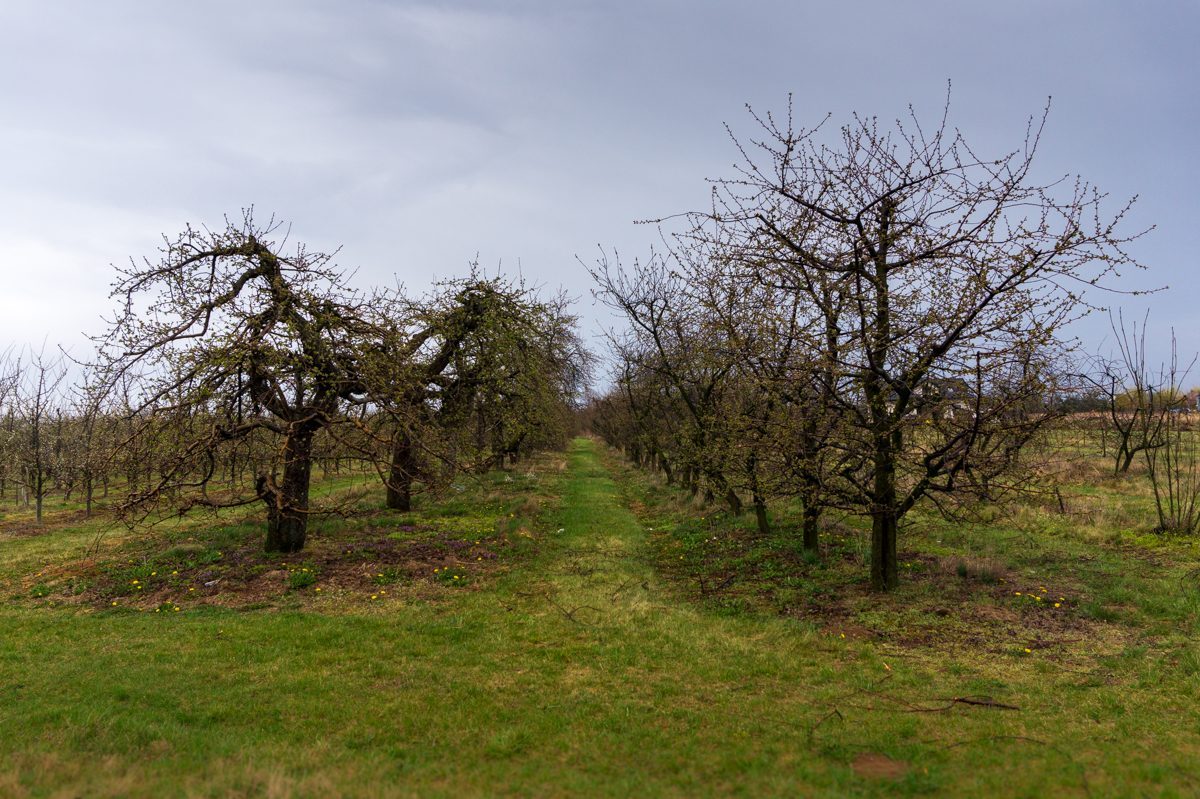
Rows and rows of fruit trees dot the otherwise flat landscape just south of Warsaw. Once frequently travelled by Communist government workers to their state holiday resorts, road 801 on the eastern bank of the meandering Vistula river is much more quiet these days. Poland is in semi-lockdown, and this area is in trouble.
Who will pick the apples before they fall from the trees once they are ripe to harvest? It’s a question that has raised alarm in this rural, conservative area just south of the Polish capital. Here they are awaiting the mainly Ukrainian seasonal workers, but if the COVID19 times will keep restrictions in place – at it seems that they will – the core of the workforce will be stuck on the Ukrainian side of the border. Poland is blocking access to the country to all aliens that have no clear business or a house in the country. Many of the fruit farmers need cheap labour from the eastern neighbour to financially survive.
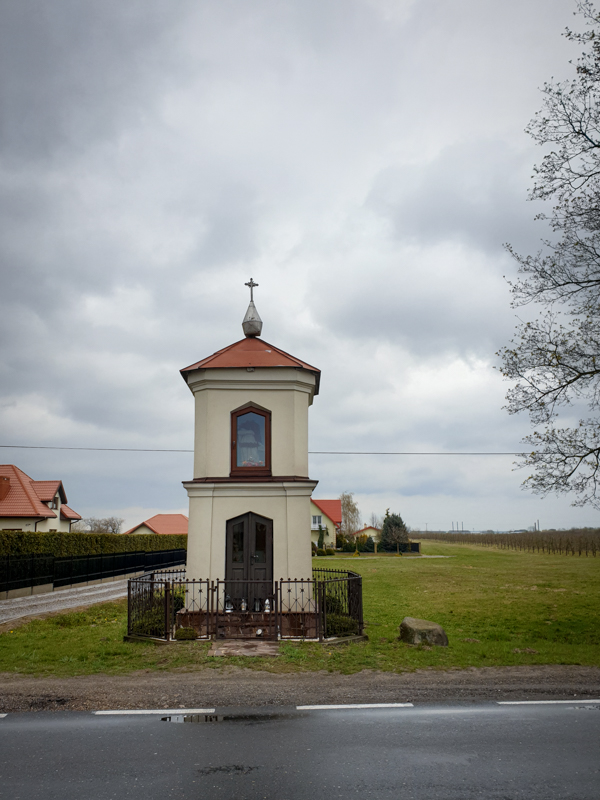
“In connection with the decision (…) to close the borders for foreigners, please intervene as soon as possible in order to allow the (longer) stay of workers from Ukraine (…),” the leaders of the National Alliance of Farmers’ Unions and Agricultural Organizations (OPZZRiOR) wrote to Polish prime minister and the leadership of his conservative party that rules the political landscape.
Apple variation
Back in Sweden I buy a bag of tasty Polish apples every now and then from my local supermarket. But while I can chose for Dutch, Belgian, Italian or even Swedish ones to vary, for many Ukrainians variation does not exist. They will work their buts off in orchard after orchard that passes my car windows on this rainy day. Driving down from Warsaw to Wilga the seriousness of the situation dawns on me.
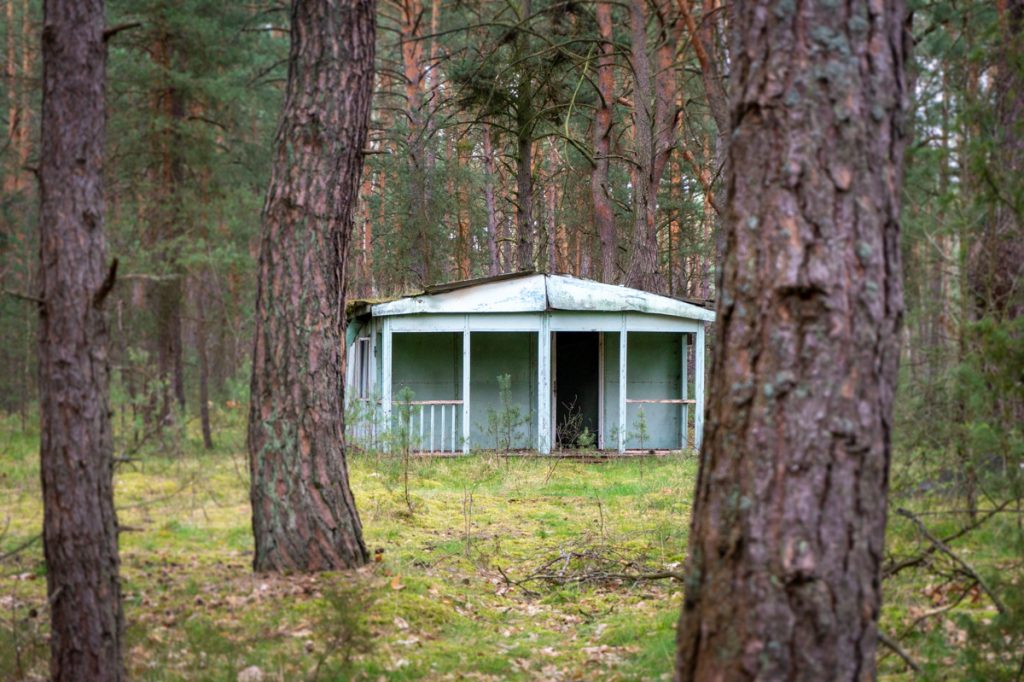
While low-tech businesses in many other European countries rely on relative cheap and hard working Polish to do the job – I often hear Polish on the streets of Stockholm – in Poland it are often Ukrainians that make things happen. A whopping 1.2 to 2 million of them, according to recent estimates. The Ukrainians are welcome to stay for 90 days without a visa or 6 to 12 months with a working visa, after which many companies just replace the leaving workers by new arriving ones.
Fruit production in Poland
Thinking about the last bag of Polish apples I bought, I must say I didn’t realize the vastness of the fruit production in Poland. According to the Financial Times Polish orchards are good for a third of the fruit produce in the European Union. Much goes to export, especially Russia. Although the COVID19 restrictions haven’t shut countries for goods traffic, the logistics challenges like longer queueing at the border crossings quite likely will not make businesses more profitable. The Polish farmers already have a tough couple of years behind them, e.g. when EU sanctions against Russia for Moscow’s annexation of the Crimean peninsula in 2014 cut the Polish agriculture off from its main sales market.

As I can clearly see cruising through the Warsaw outback on this rainy Spring day is that there is still time to fix things. The harvest of a projected 3.9 million tons (Poland’s Statistics Office) is not due yet. My home country of Sweden is actually welcoming seasonal workers, but than again: Stockholm has been much more liberal in its limited restrictions to fight COVID19 than the Polish conservative rulers.
Misses the sex appeal
Unlike the high-tech companies that are able to quickly change from – let’s say – making cars and vodka to respirators and disinfection gel – the farmers and their workers have no economical choice here. In Communist times, government controlled tourism was a big thing here, but even when travel restrictions will be lifted this agricultural area simply misses the sex appeal of the mountains of Southern Poland, the lakes and rough forests of Eastern Poland, the sandy beaches of Northern Poland or simply the cosmopolitanism of the capital of Warsaw to attract post-communist visitors in big numbers.
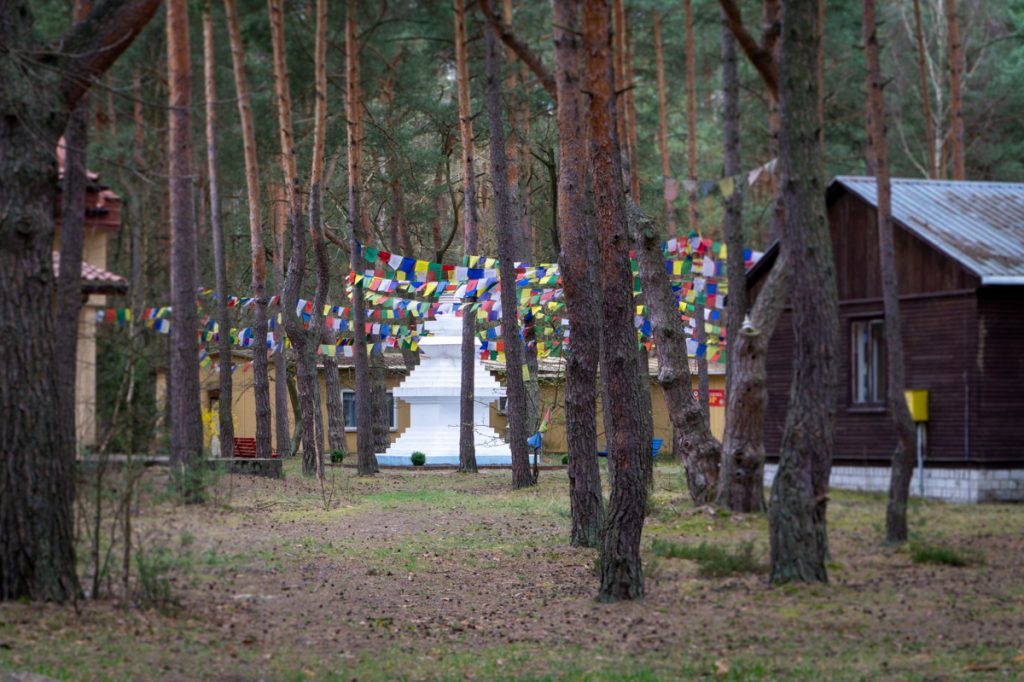
And it shows quickly when I leave the main road and step out of the car onto a dirt road surrounded by pine trees. Soon after I start walking I see loads of abandoned concrete recreational houses of Communist times, all in various stages of decay. In the middle of the forest the compound of the Chamma Ling Tibetan Buddhism centre.
Drive back
I think again about the farmers and their orchards. If they will be out of workers this harvest season, meditation or prayer is probably all that is left for them to pick the apples in enough quantities from the trees to make a living. When I drive back to Warsaw I ponder about that the Corona virus restrictions might stay for another year or two. I take another good look at the monotone landscape which doesn’t have much else than apple trees. Even with cheap labour, this area is in trouble. | © 2020 Marcel Burger / nordicreporter.com
While Europe Fights Corona, Polish Fight for Women’s Rights
Published on : by Marcel Burger
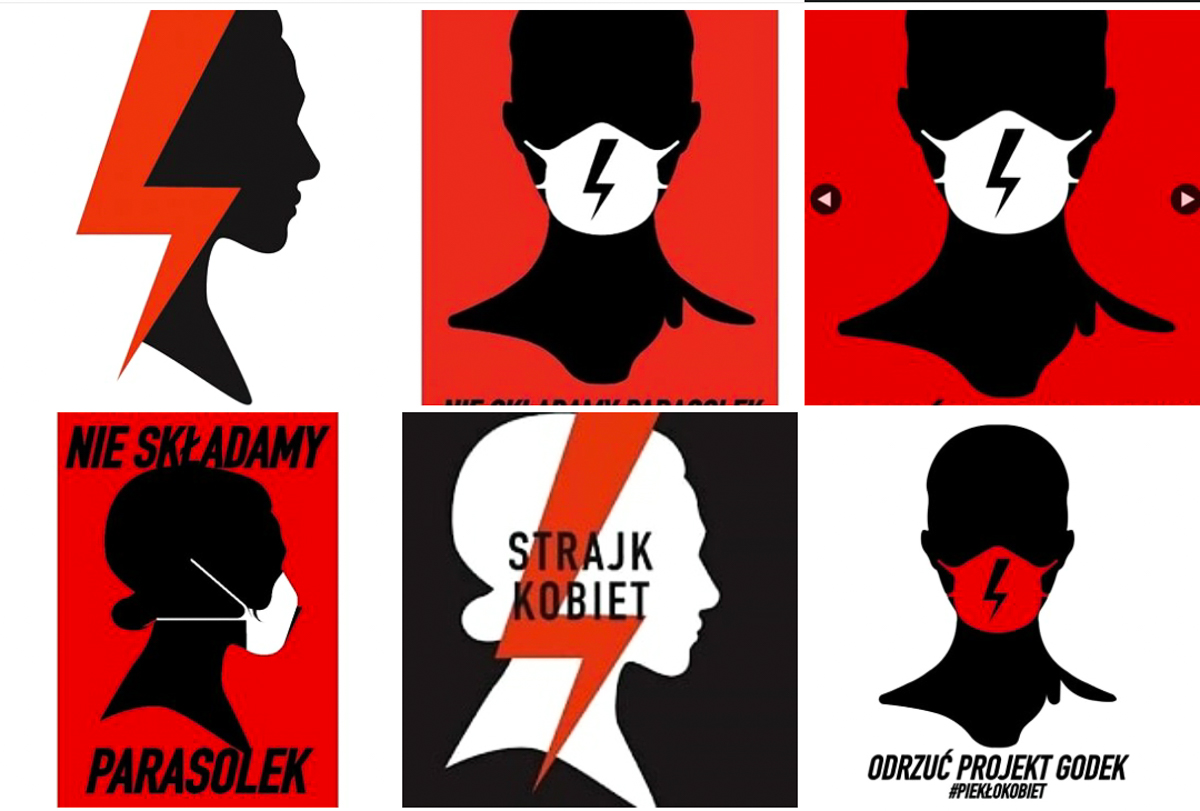
(UPDATED 17 April 2020, 09:20 Warsaw Time) Fight the virus, not the women. With this slogan at least hundreds of Polish were protesting on Tuesday 14 April against their conservative PiS government party putting a total ban on abortion on the agenda again, in the height of the Corona virus pandemic battle. The ban is PiS’s flagship way of distracting the public from when the party does something dodgy. All to secure strengthening its position of power, critics say.

This post is based on my report in the news show Nieuwe feiten, on VRT Radio 1, 14 April 2020, from 00:22:03 into into the broadcast. With program host Lieven Vandenhaute.
(UPDATED) Although officially a “civic movement” called Stop Abortion has been advocating for it with petitions, the true force behind bringing the ban back on the political agenda is the real “strongman” of Poland: Jarosław Kaczyński. He is neither the prime minister, nor the president, but the leader of conservative PiS and according to many the one who pulls the strings. In the weeks running up to Easter the government has been imposing relatively strict restrictions of people’s movement to combat the Corona virus outbreak in Poland, but at the same time limiting people’s rights and offending people’s privacy by unconstitutional changes in how the 10 May Presidential Elections are being done. With a majority in parliament and the judiciary system no longer independent after several PiS led actions against the judges, the PiS party has more or less a free game in Polish politics.
Out of the closet
However, with criticism to its election plans mounting – according to polls more than two-thirds of the Polish population wants the elections postponed – discussing another hot issue in the strongly Catholic country is just the standard operating procedure for the PiS. A proposed full ban on abortion is – for at least the third time in the past couple of years – taken out of the closet again. It’s a handy decoy for talks about the elections, the Corona restrictions or the suffering of the healthcare system because of lack of funding by the government that did put more money in e.g. its state propaganda TV and buying new limousines.
PiekłoKobiet
At least, that is what critics say. Many dozens of them went to the streets on Tuesday 14 April carrying banners and posters against the infringement of women’s rights under hashtags like #PiekłoKobiet . To obey the COVID19 rule of no more than two on the streets, a few dozen Warsovians jumped into their cars and partly blocked the main junction of the city, close to the iconic Palace of Culture and Sciences. Scrambled police tried to fine those who were breaking traffic rules, as they legally had not much else to go on. Several hundreds of Polish tagged their head of state on Instagram, causing a flow of posts for everyone to see through Polish president Andrzej Duda’s (PiS) official Instagram account.

Mobile phone snapshot of the 14 April 2020 Warsaw Marszałkowska Junction protest organized by Strajk Kobiet (Women’s Strike) against the restrictive abortion lawagainst the Polish government’s total abortion plan. (Courtesy of Kare)
Right of abortion
(UPDATED) Under current rules it is already really difficult for women to execute their right of abortion. Already those who are in need or choose an abortion often flee to neighbouring Slovakia or Germany, to break off the pregnancy in secret. Under current and future Polish law doctors that declare it is “against their conscience” to allow an abortion, they can do so, practically taking away any means of abortion especially in many rural areas of Poland. If the new ban comes into place also pregnancies of seriously disabled are no longer allowed to be aborted. Althought the current law amendment leaves space for abortion in case of rape or incest, already several PiS leaders have been advocating that event those last two cases should be taken away. One PiS politician even said publically that if his daughter would have been raped he would like her to have the child.
Suppression of women
(UPDATED) The protests by many on 14 April are not about abortion alone, they mark an underlying dissatisfaction with the current course of Polish politics and the increasing suppression of women in the Polish society. During recent years the PiS-led government has withdrawn its money from NGOs supporting women and from women helplines, it has tried to broaden the laws on domestic violence (something more often done by men) as to make it less punishable, and it is openly working on getting women to stay at home with the kids, instead of at work. The Polish government is even working for a ban on sexual education, at schools and beyond. Critics fear it will criminalize and target NGOs and individuals who are working for better understanding, for equal rights, against teenage pregnancy and such.
Trump card
(UPDATED) If the conservative PiS party will bring the total abortion ban up for voting, on 16 April they parked it on the table of the parliamentary commission for health issues for the time being, they will likely win as they can count on a majority in parliament. But many political watchers believe that the party of strongman Kaczyński will just bring it into discussion and save this trump card from voting for a next time, when a decoy is needed to distract the general public from something PiS is doing or is about to do. | © 2020 Marcel Burger / nordicreporter.com. Featured image: Some of the posters of the 14 April 2020 protest organized by Strajk Kobiet (Women’s Strike) against the restrictive abortion law in Poland